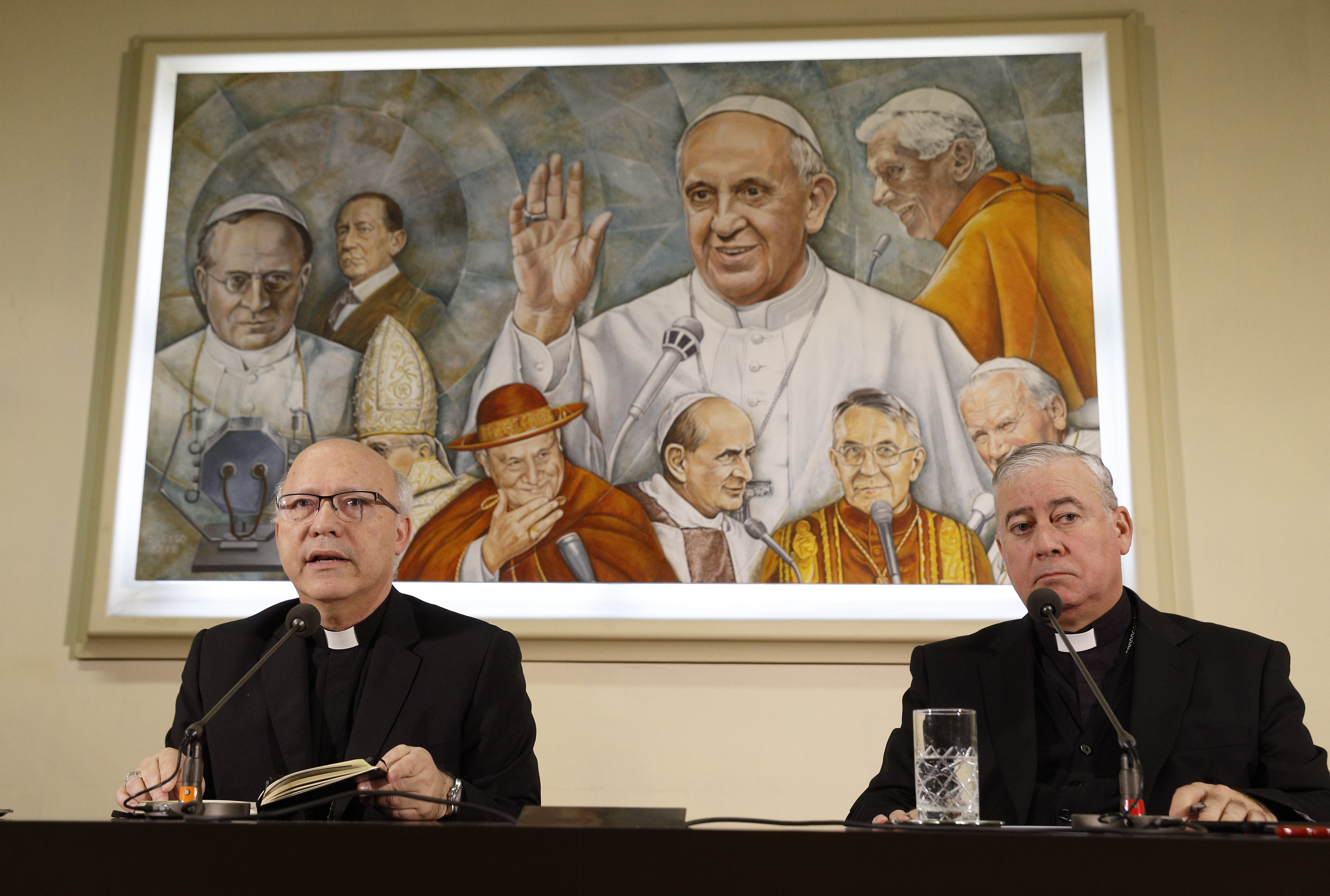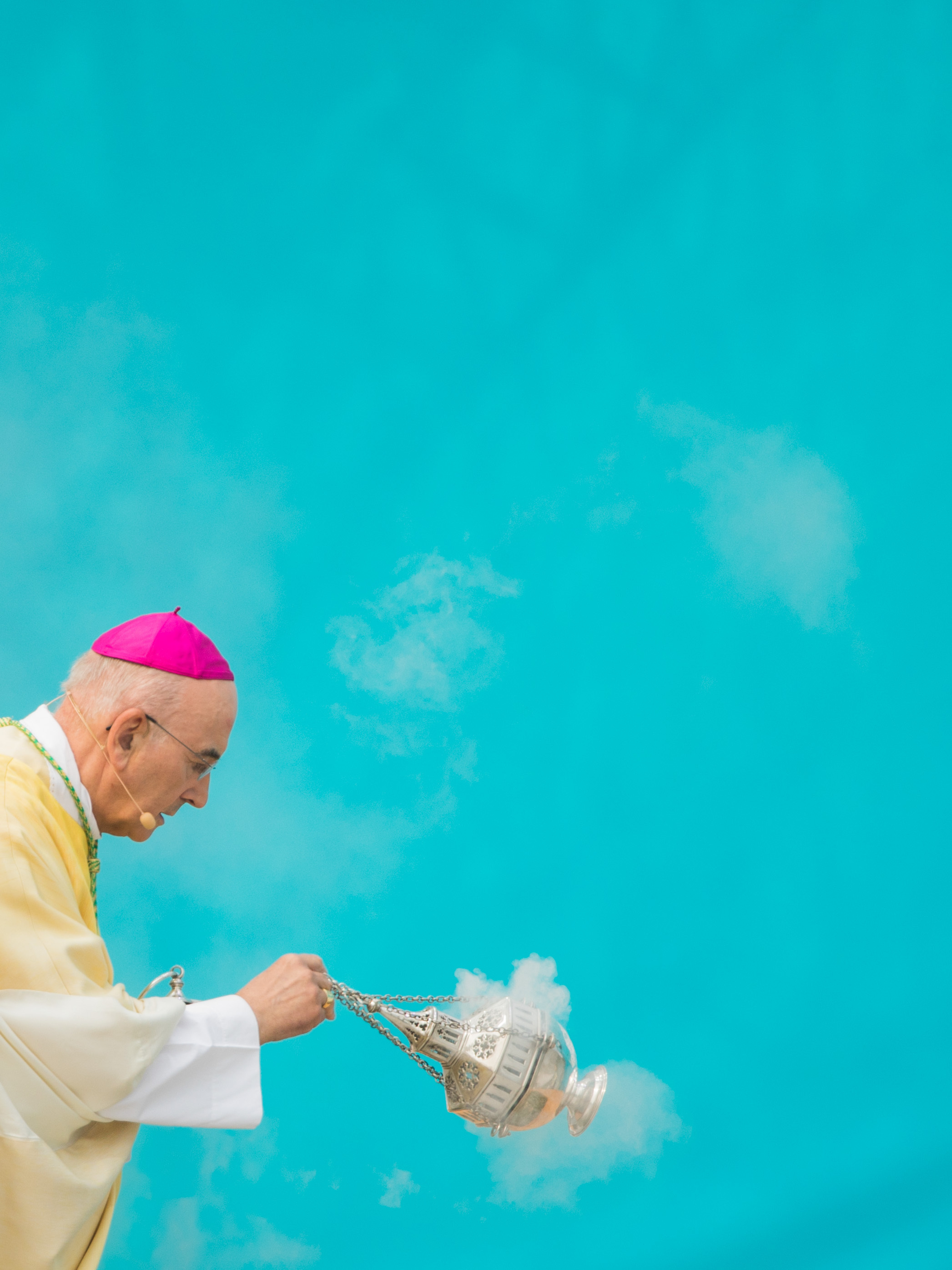The 101st German Katholikentag, whose motto this year was “seeking peace”, took place at a time of greater ferment in the German Church than has been seen for some years.
The lay-led, bi-annual event that was hosted by the diocese of Münster from 9-13 May had 50,000 permanent visitors and 20,000 day visitors.
For many the main topic of discussion was the row over intercommunion that has been preoccupying the German Church since the bishops’ plenary in February. The bishops ruled then in favour of a “handout” that gave guidance on when Protestant spouses of Catholics should be allowed to receive communion.
A minority of bishops led by Cardinal Rainer Maria Woelki of Cologne subsequently wrote to the Congregation for the Doctrine of the Faith asking for a ruling on whether the handout conformed to canon law. Bishops’ conference president Cardinal Reinhard Marx, Cardinal Woelki and other bishops met in Rome with the CDF Prefect Archbishop Luis Ladaria, Cardinal Kurt Koch president of the Pontifical Council for Promoting Christian Unity, and other bishops and officials.
After the meeting Pope Francis sent the bishops back home and asked them to find as unanimous a solution as possible.
The governor of Baden-Württemberg Winfried Kretschmann recalled at the Katholikentag that 40 per cent of Christian children in his state were from mixed-marriage families. The intercommunion issue was therefore also a pivotal ecumenical question, he said. It was taken up at the gathering by Catholic and Protestant clerics but also by a group of mixed-marriage couples who see themselves as “ecumenical peacemakers” and spoke of their experiences and wishes.
In his opening address, the German president, Frank Walter Steinmeier, who is a committed Protestant but his wife is a committed Catholic, said, “Let us seek ways of expressing our common Christian faith which will include sharing the Lord’s Supper and the Eucharist. I am sure that that is the hope of thousands and thousands of Christians in mixed marriages”.
Bishop Gerhard Feige of Magdeburg, who is responsible for ecumenical affairs in the bishops’ conference and took part in the talks in the Vatican, told Vatican News on 12 May that the German bishops thought Rome’s decision that the issue should be further discussed in the bishops’ conference was a positive one. “ ‘As unanimous as possible’ does not necessarily mean ‘absolutely unanimous’ ”, he pointed out.
He could not say whether the conference would once again be putting the intercommunion issue to the vote, Bishop Feige told Vatican News.
Cardinal Woelki for his part outlined how important it was to see the intercommunion issue as a World Church issue. It was not only a German problem and did not only involve the Protestant Church but also ecumenical relations with the Orthodox Church, which rejected intercommunion, he recalled. The Katholikentag motto “Seeking peace” did not mean one could not have serious altercations, which were sometimes even “absolutely necessary”, he underlined, but one should never lose sight of the final aim – “namely peaceful cooperation”.
Cardinal Marx, who is in favour of intercommunion, told KNA news agency that it was “quite clear” that it was now for the German bishops’ to move on the issue. “The ball is now in our court,” he said. The Pope had requested and invited the German bishops “to find a solution in Germany”.
For Archbishop Stefan Hesse of Hamburg, Pope Francis had “given a clear signal” to the German bishops. By sending the bishops’ delegation back to Germany with the request to further discuss the intercommunion issue until as unanimous as possible a solution was found, the Pope had signalled that the conference had the competence to decide the question, he told the Central Committee of German Catholics (Zdk) that organised the Katholikentag.
PICTURE: Muenster's bishop, Felix Genn, at a service in front of the castle for Ascension Day. From the 9 May until the 13 May Catholic Day is taking place in Muenster under the motto Suche Frieden' (lit. look for peace). Photo: Rolf Vennenbernd/dpa



 Loading ...
Loading ...